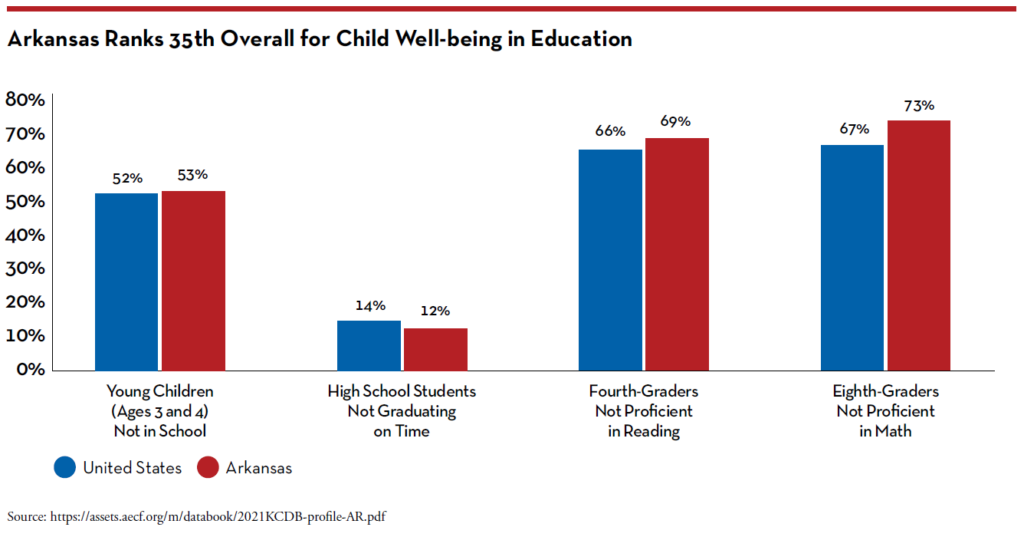
Download this handout: K-12 Education
American Rescue Plan
Through the American Rescue Plan (ARP), Arkansas received $1.2 billion in new, one-time funding for K-12 education. School districts have until September 30, 2024, to spend their funds. To make a significant change in our education system, these new resources should be aimed at the students who need it most.
Learning Loss
Most experts believe that certain groups of students, including Black, Indigenous and People of Color (BIPOC) children, children from low-income families, English language learners, and children with special education needs likely lost academic ground during the pandemic. A few reasons for this learning loss include access to digital devices and the internet, digital literacy of parents, and the economic impacts of the pandemic on students’ families.
Effective and Equitable School Discipline
BIPOC children face discriminatory school discipline practices, including higher rates of expulsions and out-of-school suspensions for the same offenses as their White peers. That helps feed the school-to-prison pipeline. Arkansas also still allows the use of corporal punishment for most students. Other practices, such as restorative justice, are more effective at keeping kids in school, improving behavior, and on track to graduate.
Strong K-12 Public Schools
Despite the Lake View Supreme Court decision on educational adequacy, major gaps remain in achievement and opportunities, as do disparities in quality of school facilities and teacher pay. Recent state investments in public
education have been below what many consider to be adequate, and more tax dollars are being shifted to schools that are not accountable to the public, including charter and private schools.
What to Ask Candidates
- What is your position on allowing public tax dollars to fund private schools?
- What would you do to address the learning loss impacting students because of the pandemic?
- Black students in Arkansas are far more likely to be suspended and punished more harshly for the same infractions than their peers who aren’t Black. How would you address school discipline policies and practices to address this reality?
- What would you do to ensure equitable educational opportunities for low-income students, Black, Indigenous, and other People of Color (BIPOC) students, English language learners, and students with special needs?
Download this handout: K-12 Education

You must be logged in to post a comment.